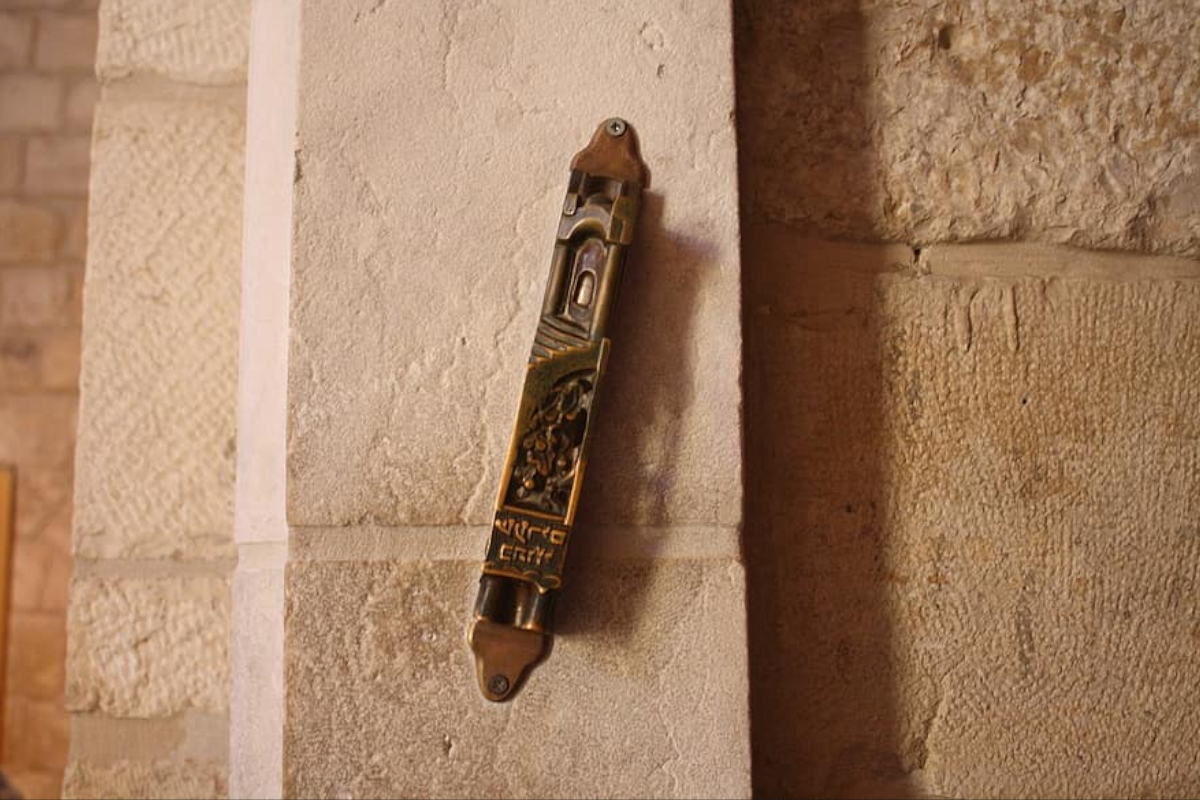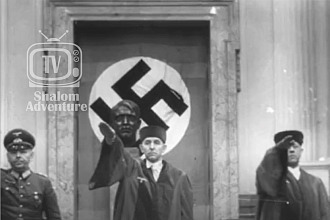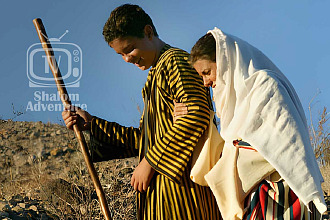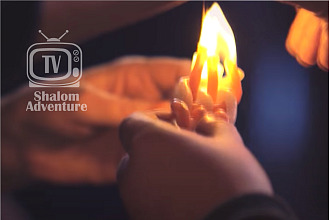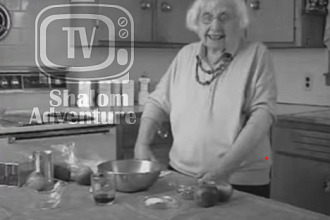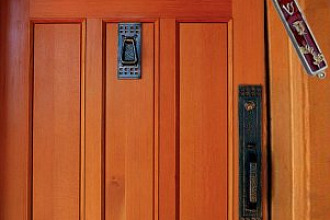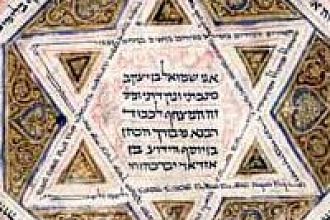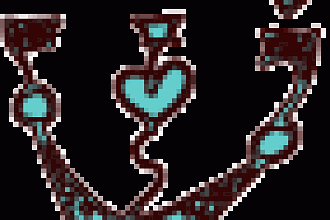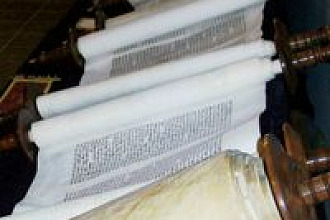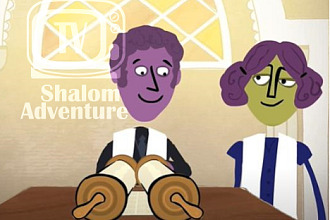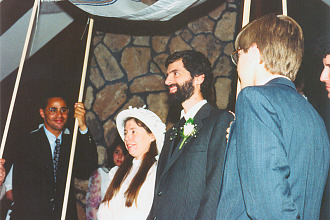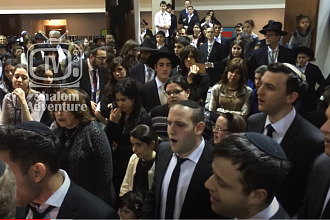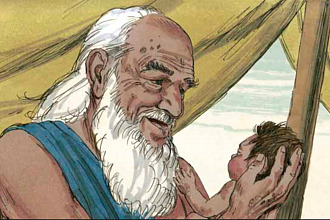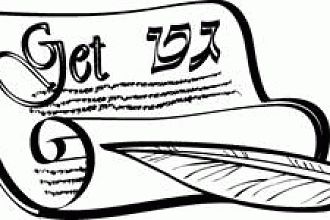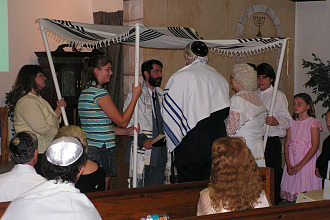If you visit a Jewish home one thing that you may see is a mezuzah. A mezuzah is a small container which is commonly rectangular in shape which can be decorated with a variety of designs.
But as plain or fancy as it may be the mezuzah holds something very special. Inside a mezuzah are handwritten passages from the Torah (“The Mezuzah Text”, n.d). The Torah passage says “‘Sh’ma, Yisra’el! Adonai Eloheinu, Adonai echad [Hear, Isra’el! Adonai our God, Adonai is one]; and you are to love Adonai your God with al-l your heart, all your being and all your resources. These words, which I am ordering you today, are to be on your heart; and you are to teach them carefully to your children. You are to talk about them when you sit at home, when you are traveling on the road, when you lie down and when you get up. Tie them on your hand as a sign, put them at the front of a headband around your forehead, and write them on the door-frames of your house and on your gates.” Deuteronomy 6:4-9
“‘So if you listen carefully to my mitzvot which I am giving you today, to love Adonai your God and serve him with all your heart and all your being; then, [says Adonai,] “I will give your land its rain at the right seasons, including the early fall rains and the late spring rains; so that you can gather in your wheat, new wine and olive oil; and I will give your fields grass for your livestock; with the result that you will eat and be satisfied.” But be careful not to let yourselves be seduced, so that you turn aside, serving other gods and worshipping them. If you do, the anger of Adonai will blaze up against you. He will shut up the sky, so that there will be no rain. The ground will not yield its produce, and you will quickly pass away from the good land Adonai is giving you. Therefore, you are to store up these words of mine in your heart and in all your being; tie them on your hand as a sign; put them at the front of a headband around your forehead; teach them carefully to your children, talking about them when you sit at home, when you are traveling on the road, when you lie down and when you get up; and write them on the door-frames of your house and on your gates —so that you and your children will live long on the land Adonai swore to your ancestors that he would give them for as long as there is sky above the earth.’” Deuteronomy 11:13-21
The mezuzah is put on the door to satisfy the command to write the law on the door frames of your house, but the law of God should be remembered at all times, not just when you are leaving or entering your house. However, putting a mezuzah on the door can provide us with a deeper understanding of true spiritually and serve as a reminder of how a believer maintains a real relationship with God, rather than a mere outward form of religion that does not penetrate the life. Doors are filters, that are used to allow some things in and keep some things out. If we didn’t want to filter out anything we wouldn’t have doors at all but we do to keep things safe. One of the most important thing we must keep safe is our minds. The Jewish King Solomon said, “Guard your heart above all else, for it determines the course of your life.” Proverbs 4:23
There are many ways we can cooperate with God in guarding our mind. The Torah says “Don’t bring something abhorrent into your house, or you will share in the curse that is on it; instead, you are to detest it completely, loathe it utterly; for it is set apart for destruction.” Deuteronomy 7:26. King David learned a good principle he probably wished he had always followed, “I will set nothing wicked before my eyes; I hate the work of those who fall away; It shall not cling to me.” Psalm 101:3. We need to be very careful about what we allow to come through the door of our minds and by extension the kind of things we allow in our homes. The Jewish prophet Isaiah summed it up when he said “To the law and to the testimony! If they do not speak according to this word, it is because there is no light in them.” Isaiah 8:20.
We need to have the word of God written on the door posts of our minds so if something cannot pass the test of truth it is not allowed to enter into our lives and make a home in our hearts. But if something can pass the test of Biblical truth we should be willing to let it in. Yeshua said,“As for me, I rebuke and discipline everyone I love; so exert yourselves, and turn from your sins! Here, I’m standing at the door, knocking. If someone hears my voice and opens the door, I will come in to him and eat with him, and he will eat with me.” Revelation 3:19-20. Sometimes the struggle is not simply keeping evil out but accepting a greater call to accountability found in God’s word. We don’t always want to hear the truth of God knocking on the door of our minds because it requires sacrifice to accept what God is telling us to change but it is always worth it. “’For He is our God, and we are the people of His pasture, and the sheep of His hand. Today, if you will hear His voice: “Do not harden your hearts, as in the rebellion, as in the day of trial in the wilderness, when your fathers tested Me; they tried Me, though they saw My work…They shall not enter My rest.”’” Psalm 95:7-11

